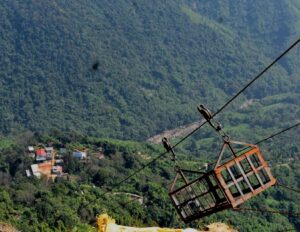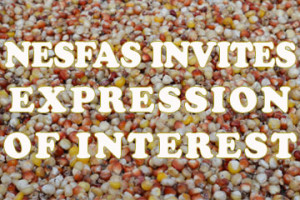Traditional grass rain coats and graduation hats made of leaf—14 women farmers from Nagaland and one from Meghalaya, for the first time in their lives, were honored (with the coat and hat) for their contribution to biodiverse farming during the International Women’s Day (IWD) celebrations held at the North East Network’s (NEN) resource centre in Chizami, Phek district.
These, as well as the 90 other women farmers and 33
men farmers present at the event, have not only kept genetic biodiversity alive on the farmland but also ensured health and nutrition to those many families in the region through jhum agriculture, terrace farming and family/backyard farming.
Keeping up with its tradition and commitment towards supporting marginalized communities, especially women, NEN organized a Biodiversity Festival, this year, launching the International Year of Family Farming on March 7. Since women are the primary food producers and care-givers in the context of the North East region, they have been kept central to the project—strengthening farmer solidarity in Nagaland.
This continued into the IWD 2014 on March 8 that celebrated womanhood in Nagaland through its women farmers, through the exchange of seeds and agricultural knowledge. While thanking every farmer present at today’s event, Project Team Leader, Seno Tsühah said, “We have to remember the women within our society who have contributed to social change—the mothers who made sure that their daughters were sent to schools and colleges to ensure a better future for women today.” That women need freedom from violence against them, and political and economic empowerment to be able to do so, as well as to ‘Inspire Change,’ which is the IWD theme for this year.
Women who feed societies are the enablers of this model, and were represented at today’s event from villages like Fakim, Therutsuswu, Ruzazho, Phugi, Dzulhami, Phesama, Noklak, Laitsohpliah (Meghalaya), Mesulumi, Sumi, Thetsumi, Sakraba, Enhulumi and Chizami—peripheries merging with other peripheries.
(This piece is an excerpt of an article that appeared in The Morung Express. To read full story follow link – http://www.morungexpress.com/frontpage/112184.html)



